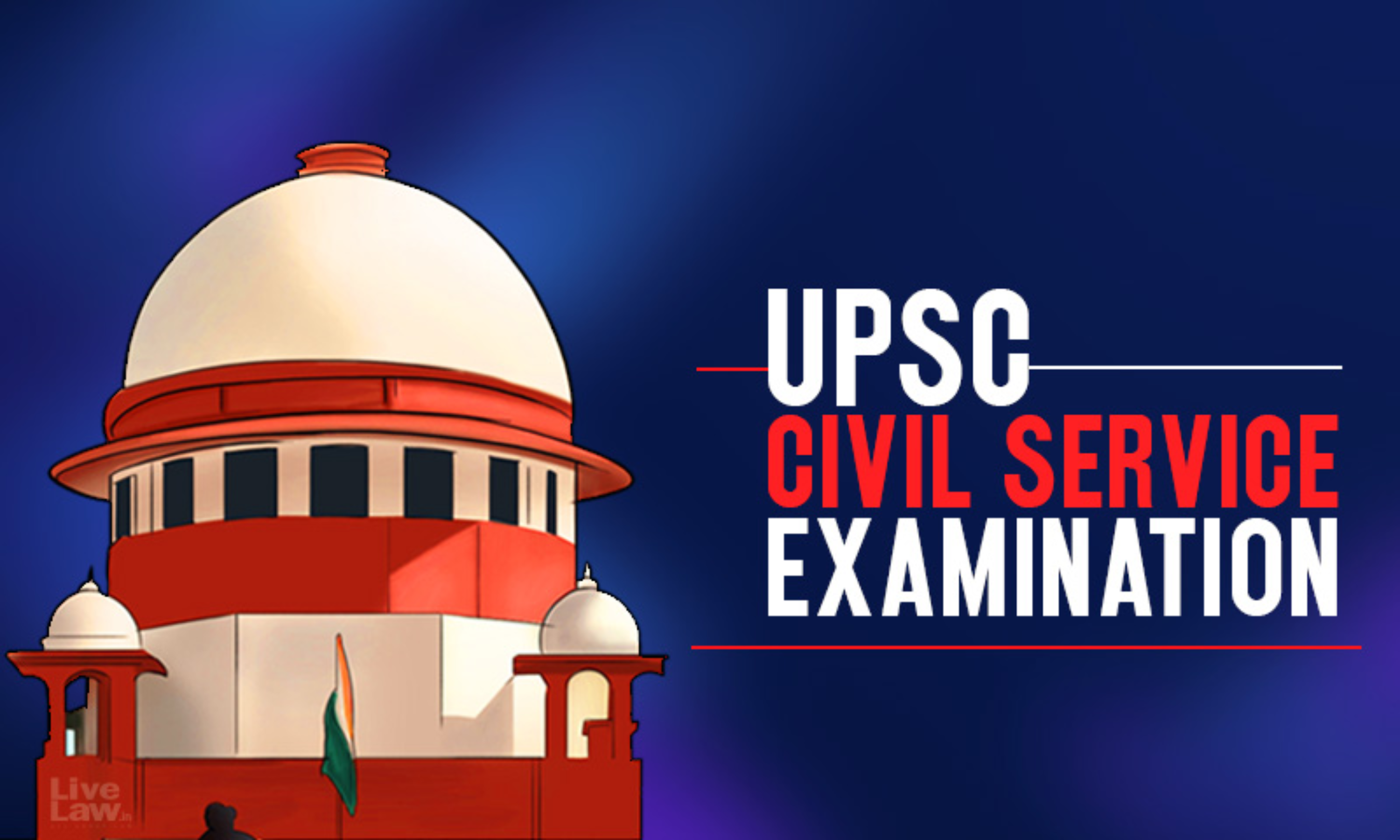The UPSC Civil Services exam is among the most difficult exams in our nation. The Union Public Service Commission, an umbrella organization for recruitment, runs it. The UPSC Civil Services test is notoriously difficult to pass. It will take a lot of effort from the hopefuls if they want to achieve their goals. Verifying your eligibility to take this test should be your first order of business before beginning to prepare for it. Anybody hoping to be considered must have graduated from high school and be within the specified age bracket.

UPSC Exam Pattern and Syllabus
There are three parts to the civil services test that the UPSC runs: Prelims, Mains, and Personality test. Both the Prelims and General Studies Paper II are objective tests. The test will be administered in both English and Hindi. The UPSC IAS Prelims examination consists of two papers.
- General Studies Paper-I
- General Studies Paper-II
Topics in geography, history, economics, general science, ecology, and current events make up the first part of the General Studies Paper. Aptitude tests in quantitative reasoning, comprehension, and logical reasoning make up General Studies Paper II.
After passing the preliminary test, candidates are required to complete a "Detailed Application form" (DAF). Nine descriptive papers, plus two papers in an optional subject, make up the main examination. This is the most important step in determining an aspirant's destiny. Once you make it through the main exam, candidates are invited to the final round, which may involve a personality test or an interview. Your position on the final tally is determined by this round.
- Civils Exam Pattern – Prelims
- Paper: General Studies I
- Type: Objective
- No. of questions: 100
- UPSC Total Marks: 200
- Duration: 2 hours
- Negative marks: Yes
- Paper: General Studies II (CSAT)
- Type: Objective
- No. of questions: 80
- UPSC Total Marks: 200
- Duration: 2 hours
- Negative marks: Yes
- Paper: General Studies I
- Total UPSC marks for Prelims: 400 (where GS Paper II is qualifying in nature with minimum qualifying marks fixed at 33%)

- Paper A: Compulsory Indian language
- Duration: 3 hours
- Total marks: 300
- Paper B: English
- Duration: 3 hours
- Total marks: 300
- Paper I: Essay
- Duration: 3 hours
- Total marks: 250
- Paper II: General Studies I
- Duration: 3 hours
- Total marks: 250
- Paper III: General Studies II
- Duration: 3 hours
- Total marks: 250
- Paper IV: General Studies III
- Duration: 3 hours
- Total marks: 250
- Paper V: General Studies IV
- Duration: 3 hours
- Total marks: 250
- Paper VI: Optional I
- Duration: 3 hours
- Total marks: 250
- Paper VII: Optional II
- Duration: 3 hours
- Total marks: 250
The subjects which are covered by the General Studies Papers in Mains Exam are:
- General Studies I:
- Indian Heritage and Culture
- History and Geography of the World
- Society
- Social Justice
- International relations
- General Studies II:
- Governance
- Constitution
- Polity
- Environment
- Security and Disaster Management
- General Studies III:
- Technology
- Economic Development
- Bio-diversity
- Aptitude
- General Studies IV:
- Ethics
- Integrity
The Optional subjects for Paper VI and VII of the mains examination have to be any one of the subjects from the following list:
- Agriculture
- Animal Husbandry and Veterinary Science
- Anthropology
- Botany
- Chemistry
- Civil Engineering
- Commerce and Accountancy
- Economics
- Electrical Engineering
- Geography
- Geology
- History
- Law
- Management
- Mathematics
- Mechanical Engineering
- Medical Science
- Philosophy
- Physics
- Political Science and International Relations
- Psychology
- Public Administration
- Sociology
- Statistics
- Zoology
The literature of any one of the following languages: Assamese, Bengali, Bodo, Dogri, Gujarati, Hindi, Kannada, Kashmiri, Konkani, Maithili, Malayalam, Manipuri, Marathi, Nepali, Odia, Punjabi, Sanskrit, Santhali, Sindhi, Tamil, Telugu, Urdu, and English.
How To Prepare For An IAS Interview?
Recommended Books for the UPSC Examination
To start, all IAS candidates should read the NCERT books from sixth grade through twelfth grade. To prepare for the UPSC examination, applicants should buy a standard book on each subject and supplement their reading with other resources. Below, you'll find a list of important books that candidates can peruse.
UPSC Books for History
- India’s Struggle for Independence – Bipan Chandra
- Indian Art and Culture by Nitin Singhania
- NCERT XI (Ancient & Medieval)
- NCERT XII (Modern Indian History)
UPSC Books for Indian Polity & Constitution
- Indian Polity – by M. Laxmikanth
- NCERT IX-XII
- Important Acts that Transformed India by Alex Andrews George
- Important Judgments that Transformed India – by Alex Andrews George
UPSC Books for Geography
- Certificate Physical Geography by G C Leong
- NCERT VI – X (Old Syllabus)
- NCERT XI, XII (New Syllabus)
- World Atlas (Orient Black Swan)
UPSC Books for Economics
- Indian Economy by Nitin Singhania
- Indian Economy by Ramesh Singh
- Indian Economy Key Concepts authored by Sankarganesh Karuppiah
- Economic Development & Policies in India authored by Jain & Ohri
UPSC Books for International Relations
- NCERT XII (Contemporary World Politics)
- Current Affairs
UPSC Books for Environment - Ecology, Biodiversity & Climate Change
- Environment – by Shankar IAS
- Environment – by PMF IAS
UPSC Books for Science & Technology
- Science and Technology authored by Neeraj Nachiketa.
- Science & Technology For Civil Services Exams by Ravi P Agrahari.
- General Science For Civil Services Preliminary Examinations authored by S.A.Majid.
UPSC Books for CSAT
- Verbal & Non-Verbal Reasoning authored by R S Aggarwal
- Tata McGraw Hill CSAT Manual

UPSC Books for Current Affairs
- Daily Newspaper Reading (Make Notes Regularly)
- India 2022 Yearbook – by Rajiv Mehrishi
- Online Daily Current Affairs Videos to understand the background of the news and related aspects.
UPSC Books for GS Paper I (Geography)
- Certificate Physical and Human Geography authored by G C Leong
- Fundamentals of Physical Geography NCERT Class 11
- Geography of India by Majid Husain
- World Geography by Majid Husain
- World Atlas (Orient Black Swan)
UPSC Books for GS Paper I (History, Indian Heritage & Culture)
- Ancient India by R.S Sharma
- India’s Struggle for Independence by Bipan Chandra
- India after Independence by Bipan Chandra
- History of Medieval India by Satish Chandra
- Indian Art and Culture by Nitin Singhania
UPSC Books for World History (GS Paper I)
- World History – by Krishna Reddy
- History of the World – by Arjun Dev
UPSC Books for Indian Society (GS Paper I)
- Indian Society: Themes and Social Issues by Nadeem Hasnain
- Indian Society – by M Senthil Kumar
UPSC Books for GS Paper II
- Indian Polity by M. Laxmikanth
- Introduction to the Constitution of India authored by DD Basu
- International Relations: Pushpesh Pant
UPSC Books for GS Paper III
- Indian Economy – Nitin Singhania
- Environment and Disaster Management by Tata McGraw Hill
- Challenges to Internal Security of India by Ashok Kumar
UPSC Books for Ethics (GS IV)
- Ethics, Integrity, and Aptitude for Civil Services Main Examination by Subba Rao and P.N. Roy Chaudary
UPSC Preparation Tips: Advice from Toppers
Those who manage to not only pass the UPSC Civil Services Examination but also rank among its highest scorers are rightfully regarded as authorities in their respective fields. If applicants want to know how to do well on the UPSC exam, they should follow the advice of previous winners. If they accomplish this, they will have a better shot at passing the test and becoming a part of India's bureaucracy.
Be Confident and Positive
Before any admission exam, you must trust in your talents and be positive for UPSC exam preparation.
Know Important Updates
The Union Public Service Commission provides UPSC Civil Services Exam notification about online application forms, exam dates, admit card availability, and more. Since you submitted the application form, you should check the official website often for updates.
Know the UPSC IAS Exam Pattern & Syllabus
Staying current on exam patterns and curriculum is crucial to exam preparation.
True Dedication and Hard Work Lead to Success
IAS toppers share one thing: hard effort and dedication to their aim. Most IAS toppers said that before commencing their test preparation, they set rules they had to follow regularly, which helped them focus and attain their dreams.
Prepare Well
Design your preparation timetable. Calculate how much time you have to prepare for the exam and plan to cover all topics at least 6 months prior. Practice more to determine your comfort level in all sections and base your plan on that.
Select Good Study Materials
List your study materials and the books you need to complete the course. Seek advice from seniors and study NCERT books as often as possible to grasp things thoroughly. Test your performance after a week and fix any issues.
Practice More
Regular practice of question papers and mock tests helps students identify their strengths and weaknesses. IAS toppers say completing Prelims and Mains mock-test papers has helped them correct their mistakes and enhance their answer writing.

Awareness of Surroundings
IAS aspirants must study hard and watch their environment. IAS candidates should also do additional thinking quizzes and puzzles to improve their brainpower and creativity.
Trustworthy Sources are Your Best Friends
Reading the HINDU newspaper, the main source for current affairs is essential for national exams like UPSC. UPSC CSE test prioritizes contemporary concerns, hence candidates must stay current on national and worldwide issues. Aspirants should also consult government sources such as AIR News analysis, Yojana Magazine, ministry websites, Economic Surveys, ARC reports, etc.
Revise Regularly
Revision is crucial for IAS exam preparation. With a suitable revision format, you can enhance the prepared themes. Additionally, set a deadline and stick to it to finish your preparation on time.
Résumer avec l'IA :











